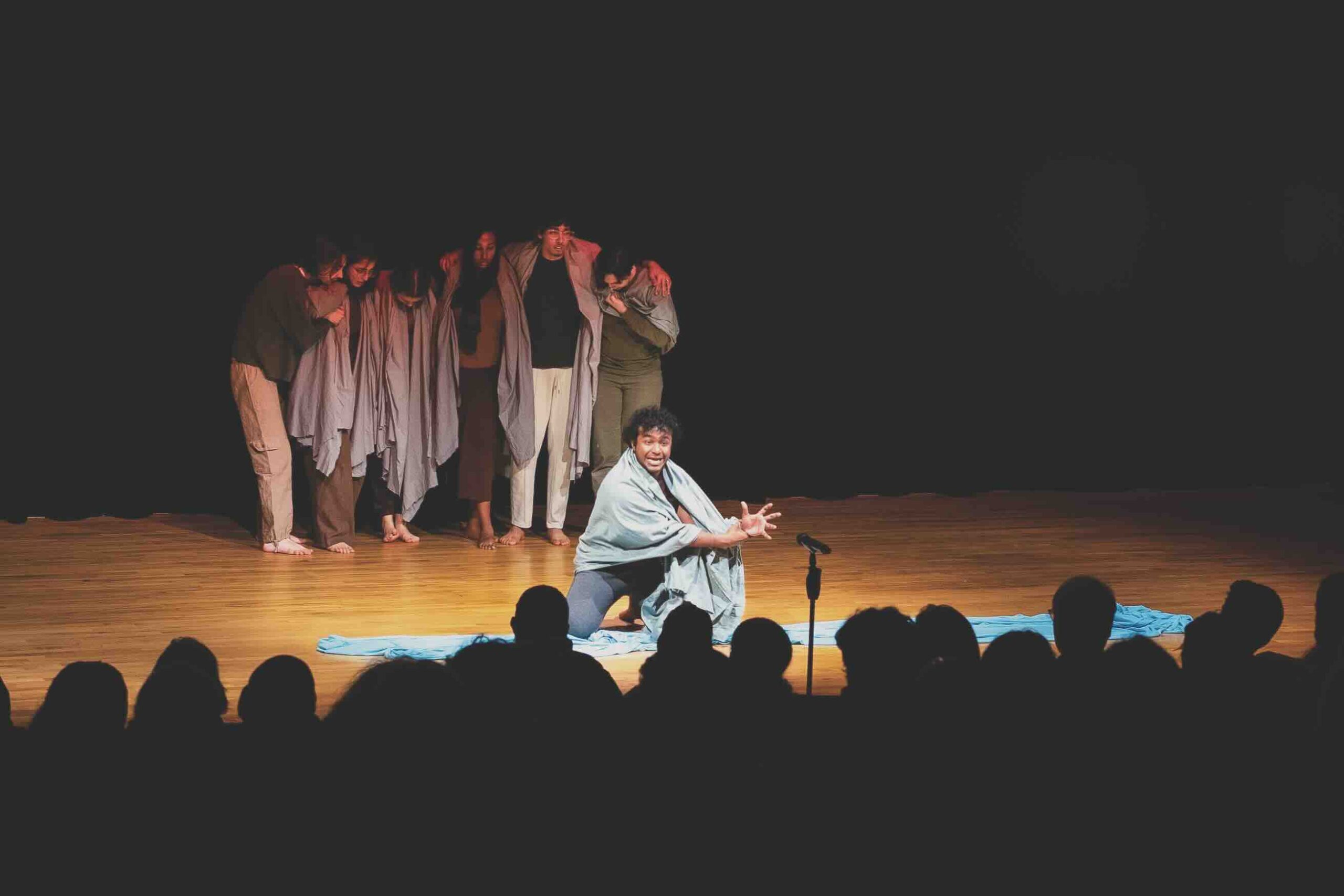Bowdoin and local students perform narratives of tragedy in Gaza Monologues
February 16, 2024
 Courtesy of Ahmad Abdulwadood
Courtesy of Ahmad AbdulwadoodBowdoin students stood alongside students from the University of Southern Maine and Casco Bay High School in performing the Gaza Monologues last Saturday in Kresge Auditorium. The student performers hailed from Iraq, Sri Lanka, Somalia, Tunisia and the United States. They were just a few years older than the 14- to 19-year-old Palestinian authors of the Gaza Monologues, which were written as a play in 2010.
The performance, sponsored by the Middle East and North African Student Association (MENASA) and Students for Justice in Palestine (SJP), wove together laughter with screams, tying tales of community to recollections of immense violence and loss. The Gaza Monologues were written in 2010 as a response to the war on the Gaza Strip. Each student performer shared six or seven different stories.
“Gaza is a matchbox … and we’re the matches inside it,” one monologue began.
“Before the war I was a child…. But after the war I discovered I’m not a child anymore, and that Gaza, unlike all cities of the world, doesn’t have children in it,” began another.
The Monologues were first performed a decade ago at the Ashtar Theatre in Ramallah, Palestine. On November 29, 2023, the International Day of Solidarity with the Palestinian People, the Ashtar Theatre called for a revival of the Monologues across the world as a show of solidarity.
A member of the Class of 2026, who performed on Saturday, hoped that bringing the Monologues to campus would shed light upon the ongoing violence in Gaza, which has had a disproportionate death toll on children.
“They still ring very true now, these very personal experiences,” the student said.
The student emphasized that it is unknown whether a number of the writers of the Monologues are still alive, as attacks on the region remain a constant presence. Early on Monday morning, Israel launched strikes on the city of Rafah in Gaza, killing at least 67, with death tolls expected to rise.
“I am a storyteller, so I appreciate any opportunity to share messages that I think matter…. It’s really about bringing context and personal anecdotes to global headlines. When you see a school is bombed perhaps the monologues help tell you how children are experiencing those moments,” the student said. “We have a responsibility of nurturing empathy, and to reckon with the privilege that we are safe, we are fed, we are learning—grappling with where we stand in the world.”
After the performance, leaders of SJP noted that the situation for students in Gaza is so dire that the Ministry of Education canceled the 2023-2024 school year. They urged audience members to treat the performance not as a work of art but as a reflection on the reality of life in Gaza.
The performance was co-produced by the SPACE Gallery, a Portland-based arts group, and the Maine Humanities Council. The show was first performed in Portland at SPACE on February 3, with an evening and matinee performance both sold out.
The show was adapted and directed by Maine-based directors Fateh Azzam, a Palestinian refugee born in Lebanon who has written and directed plays, and Nat Warren-White, who has worked as a drama therapist and actor. Rehearsals and preparation for the performance relied on support from Maine community members, with practices often held in the homes of the directors’ friends.
Alongside the monologues, Azzam included readings of poems by Tahsin Ali Ahmad and Hisham Awartani, two Palestinian American college students who were shot in Burlington, Vt.in November.
“[Awartani] wrote the poem about hope in 2015, when he was in sixth grade in Ramallah, occupied Palestine,” Azzam wrote in the program for the show.
He noted that he included the poems with the permission of Ahmad and Awartani.
Mary Cook, part of the Maine Coalition for Palestine, attended Saturday’s performance and noted being impressed with the students’ performance.
“To be able to hear the words of people living in Palestine brings you to that space and makes it possible to carry their voices forward,” Cook said. “It’s sad to know that this was from so many years ago and it’s still so present…. To see it happening in Maine is incredible.”
On Sunday, a shortened version of the Monologues will be performed at the Unitarian Universalist Church in Brunswick. The performance will be a part of Focus on Palestine, a Brunswick event that centers on Palestinian culture and solidarity.

Comments
Before submitting a comment, please review our comment policy. Some key points from the policy: